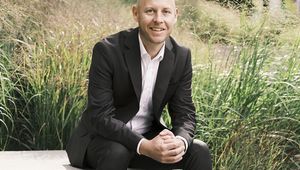Prof. Dr. Marcel Steller is a professor, researcher, and scholar at the JKU’s Institute of Management Accounting and Auditing.

What exactly is Financial Auditing about?
Marcel Steller: Financial auditing is a special area of business auditing within the field of business administration. Auditing a company's financial information aims to not only safeguard its accounting accuracy, reliability and compliance with accounting standards, it is also key to generating confidence in capital markets and when it comes to decision-making processes among various investors.
What is your inaugural lecture about?
Marcel Steller: My inaugural lecture provides an overview of the latest developments in auditing and demonstrates how my research can help solve related problems.
What exactly is your research about?
Marcel Steller: Auditing is a highly regulated field. Among other things, my research focuses on how regulation incentives affect making decisions, further developing standardization parameters, and addressing practice-oriented issues relating to interpreting standards associated with auditing.
Why did you decide to come to the JKU?
Marcel Steller: My professorship position at the JKU gives me access to an outstanding research environment in the field of auditing as well as an opportunity to interact directly with companies, especially those located in Linz.
What do you find fascinating about this area of research?
Marcel Steller: I am fascinated by the diverse number of topics and the interdisciplinary aspects in this particular area of research. There are also many references to issues that are particularly important in business practices.
Why is this research even necessary, meaning how will it improve our lives?
Marcel Steller: My research aims to explain complex relationships and advance the institutional parameters in auditing, which in turn strengthens investor confidence and capital market stability.
Why should students take your classes?
Marcel Steller: Students can benefit from my extensive research and professional experience which I can pass on in addition to information found in textbooks. Creating an inspiring educational and learning environment in order to support communication and discussion in the classroom is particularly important to me.
What are you currently working on?
Marcel Steller: I usually work on several projects simultaneously. One of my current projects involves exploring the effects of auditing sustainability reports about information asymmetries in the capital market. Another project focuses on the effects high inflation has recently had on the incentive system used to ensure high audit quality. I am also investigating how fees for audit service providers in Austria have changed and the impact of recent reforms in the audit sector.
What are your hobbies?
Marcel Steller: In addition to my job, I enjoy sports, such as cycling during the summer, and skiing and back-country skiing during the winter, especially with my family.
What else do you want to do or accomplish in your life?
Marcel Steller: There is too much to cover – and too much to choose from – to sum up in just a few sentences.
About Marcel Steller:
Born in Heidelberg (Germany) in 1978, Marcel Steller completed his doctorate degree in social and economic sciences at the University of Innsbruck. In 2023, he became a university professor for Financial Auditing at the JKU's Institute of Management Accounting and Auditing. This year, he completed his habilitation/post-doc in business administration. He is the recipient of several awards in recognition of his work, most recently the 2021 Research Award presented by the Johannes Bisegger Foundation.
Click here to learn more about Prof. Steller and his inaugural lecture on May 13.
 Go to JKU Homepage
Go to JKU Homepage











